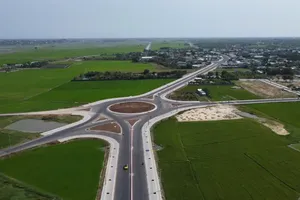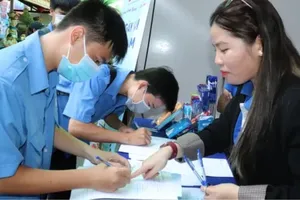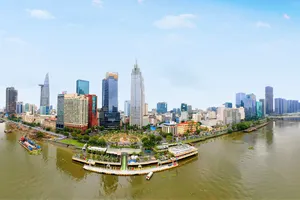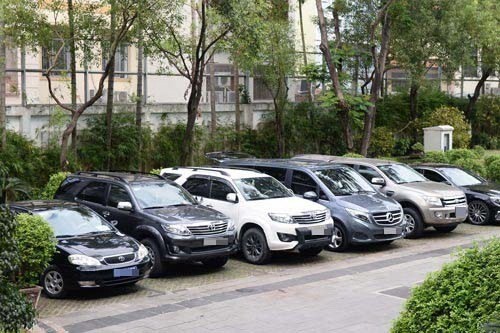
Le Thanh Khoa, director of the HCM City Voluntary Youth Public Benefit Service Company (BESCO), said the company had begun receiving public cars and drivers from agencies for rent to State units.
Pham Khanh Phong Lan, head of the HCM City Food Safety Management Board, said the board was ready to rent public vehicles to the agency’s head and deputy heads.
The two public cars previously managed by the agency will be handed over to the authorities or auctioned, she said.
The rental price is 11,000 VND per km (based on the current average price of taxi companies) or 19.8 million VND per month per car, according Le Ngoc Thuy Trang, Deputy Director of the Department of Finance.
Trang said the rental price was carefully calculated by the Department of Finance, ensuring more savings for the budget.
According to Trang, public vehicles used by the units will be sold or transferred to BESCO.
The driver of the units will be laid off and those who wish to continue their work will be referred to BESCO for work under contract.
According to the municipal People’s Committee, the pilot units must report the results of the pilot scheme to the Department of Finance before October 30. The department will then report to the People’s Committee by November 30.
It is expected that the city’s People’s Committee will consider extending the pilot project to all departments and districts from early next year.
The pilot has begun in five State agencies and units, including the municipal People’s Committee Office, Department of Finance, Binh Thanh district’s People’s Committee, Binh Chanh district’s People’s Committee, and the city’s Food Safety Management Board.
Under the pilot, two cars will be arranged for each unit under a Government decision on the management and use of cars in State agencies and units.
The agencies and units must sign monthly car rental contracts with the company. During the pilot period, 26 cars will be available for use for five units.
BESCO will also arrange 10 cars for 24-hour service to meet urgent needs on weekends, overtime or public holidays. The trips will be charged per journey or by kilometre.
To reserve a vehicle, users will call a reservation centre or use the TNXP CAR phone app or computer via the internet.
The salaries of drivers, escorts and security forces will be approved by the city’s Department of Finance.
HCM City has an excess of around 700 public cars, most of them old and damaged. Each year, the city pays a great deal of money to maintain and repair public cars.
Before the pilot began, each agency managed five to eight cars at a cost of about 15 million VND per car per month. But now each unit has only two cars, with a cost of 20 million VND per car per month.
With the pilot, the city expects savings of more than 100 million VND per month, equivalent to over 1.2 billion VND each year.
Further savings will occur because of reduced spending on new car purchases.
The city’s old vehicles will be revoked and proceeds from sales will be remitted to the State budget.
Vietnam has about 34,241 public cars, each of which costs around 320 million VND, equivalent to 13 trillion VND (572.7 million USD) a year.
The Government plans to reduce the number of public cars in the country to 30-50 percent by 2020, which is expected to save the State budget about 3.4 trillion VND (150 million USD) per year.
Pham Khanh Phong Lan, head of the HCM City Food Safety Management Board, said the board was ready to rent public vehicles to the agency’s head and deputy heads.
The two public cars previously managed by the agency will be handed over to the authorities or auctioned, she said.
The rental price is 11,000 VND per km (based on the current average price of taxi companies) or 19.8 million VND per month per car, according Le Ngoc Thuy Trang, Deputy Director of the Department of Finance.
Trang said the rental price was carefully calculated by the Department of Finance, ensuring more savings for the budget.
According to Trang, public vehicles used by the units will be sold or transferred to BESCO.
The driver of the units will be laid off and those who wish to continue their work will be referred to BESCO for work under contract.
According to the municipal People’s Committee, the pilot units must report the results of the pilot scheme to the Department of Finance before October 30. The department will then report to the People’s Committee by November 30.
It is expected that the city’s People’s Committee will consider extending the pilot project to all departments and districts from early next year.
The pilot has begun in five State agencies and units, including the municipal People’s Committee Office, Department of Finance, Binh Thanh district’s People’s Committee, Binh Chanh district’s People’s Committee, and the city’s Food Safety Management Board.
Under the pilot, two cars will be arranged for each unit under a Government decision on the management and use of cars in State agencies and units.
The agencies and units must sign monthly car rental contracts with the company. During the pilot period, 26 cars will be available for use for five units.
BESCO will also arrange 10 cars for 24-hour service to meet urgent needs on weekends, overtime or public holidays. The trips will be charged per journey or by kilometre.
To reserve a vehicle, users will call a reservation centre or use the TNXP CAR phone app or computer via the internet.
The salaries of drivers, escorts and security forces will be approved by the city’s Department of Finance.
HCM City has an excess of around 700 public cars, most of them old and damaged. Each year, the city pays a great deal of money to maintain and repair public cars.
Before the pilot began, each agency managed five to eight cars at a cost of about 15 million VND per car per month. But now each unit has only two cars, with a cost of 20 million VND per car per month.
With the pilot, the city expects savings of more than 100 million VND per month, equivalent to over 1.2 billion VND each year.
Further savings will occur because of reduced spending on new car purchases.
The city’s old vehicles will be revoked and proceeds from sales will be remitted to the State budget.
Vietnam has about 34,241 public cars, each of which costs around 320 million VND, equivalent to 13 trillion VND (572.7 million USD) a year.
The Government plans to reduce the number of public cars in the country to 30-50 percent by 2020, which is expected to save the State budget about 3.4 trillion VND (150 million USD) per year.
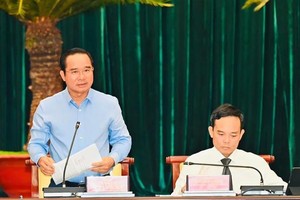
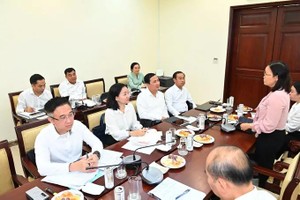
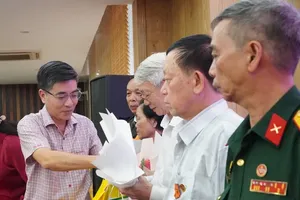

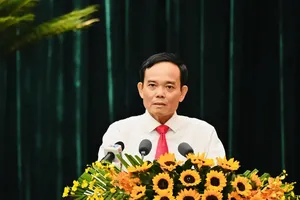
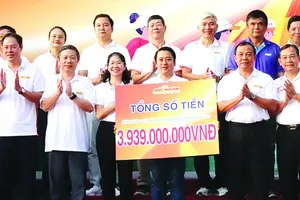
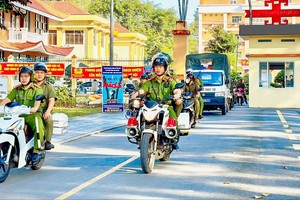
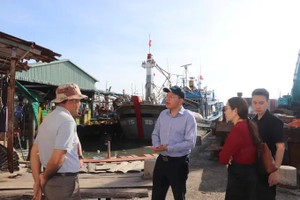
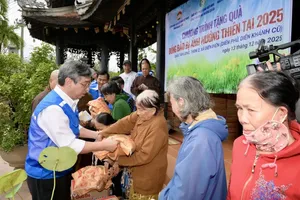
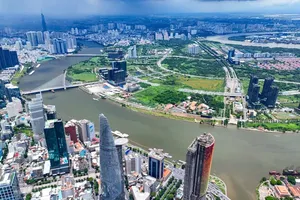
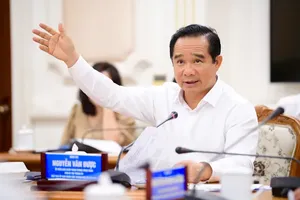
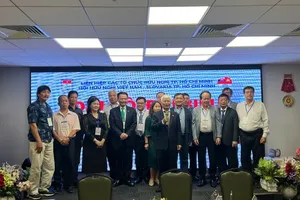
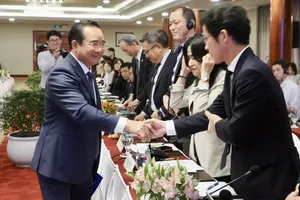
)

